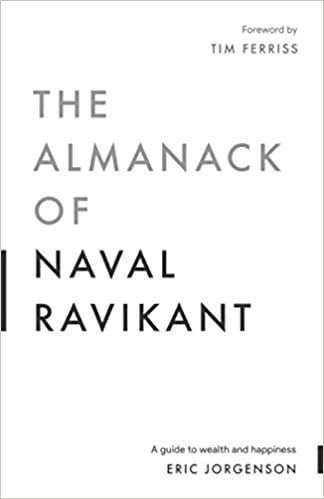This post is part of the 📖 The Almanack of Naval Ravikant series.
Today, I am still reading MEDITATION + MENTAL HEALTH section of the HAPPINESS chapter from the book, The Almanack of Naval Ravikant: A Guide to Wealth and Happiness written by Author, Jack Butcher.
Getting rich is not just about luck; happiness is not just a trait we are born with. These aspirations may seem out of reach, but building wealth and being happy are skills we can learn.
So what are these skills, and how do we learn them? What are the principles that should guide our efforts? What does progress really look like?
The Book The Almanack of Naval Ravikant: A Guide to Wealth and Happiness is a collection of Naval’s wisdom and experience from the last ten years, shared as a curation of his most insightful interviews and poignant reflections.
Yesterday, I started reading SAVING YOURSELF section from the HAPPINESS chapter.
Part II
HAPPINESS
MEDITATION + MENTAL HEALTH
Meditation is intermittent fasting for the mind. - Naval Ravikant
Your breath is one of the few places where your autonomic nervous system meets your voluntary nervous system.
It’s involuntary, but you can also control it. I think a lot of meditation practices put an emphasis on the breath because it is a gateway into your autonomic nervous system.
Many cases in the medical and spiritual literature of people control their bodies at levels that should be autonomous.
Relaxed breathing tells your body you’re safe. Then, your forebrain doesn’t need as many resources as it usually does. Now, you can channel that extra energy to your hindbrain, and it can reroute those resources to the rest of your body.
Most of our suffering comes from avoidance. Once you’re in, you’re in. It’s not suffering. Look at it. Deal with it. Accept it, but don’t mentally suffer over it.
Choiceless Awareness, or Nonjudgmental Awareness
You practice learning to accept the moment you’re in without making judgments. You don’t think. You don’t make any decisions. You don’t judge anything. You just accept everything.
If I do that for ten or fifteen minutes while walking around, I end up in a very peaceful, grateful state. Choiceless Awareness works well.
Transcendental Meditation
You could also do transcendental meditation, which is where you’re using repetitive chanting to create white noise in your head to bury your thoughts. Or, you can just very keenly and very alertly be aware of your thoughts as they happen.
As you watch your thoughts, you realize how many of them are fear-based. The moment you recognize fear, without even trying, it goes away. After a while, your mind quiets.
When your mind quiets, you stop taking everything around you for granted. You start to notice the details.
If you stop talking to yourself for even ten minutes, if you stop obsessing over your own story, you’ll realize we are really far up Maslow’s hierarchy of needs, and life is pretty good.
Key Takeaways
-
We’re constantly clothed, fed, and warm. Our bodies have lost touch with the cold. The cold is important because it can activate the immune system.
-
What I find is 90 per cent of the thoughts I have are fear-based. The other 10 per cent may be desire-based.
Summary
-
Meditation is intermittent fasting for the mind. Too much sugar leads to a heavy body, and too many distractions lead to a heavy mind.
-
Time spent undistracted and alone, in self-examination, journaling, meditation resolves the unresolved and takes us from mentally fat to fit.
That’s it for today. Tomorrow, we will continue to read MEDITATION + MENTAL HEALTH section from the HAPPINESS chapter from this great book.
Author(s): Eric Jorgenson
Part 26 of 33 in the 📖 The Almanack of Naval Ravikant book series.
Series Start | The Almanack of Naval Ravikant: A Guide to Wealth and Happiness - Day 25 | The Almanack of Naval Ravikant: A Guide to Wealth and Happiness - Day 27
